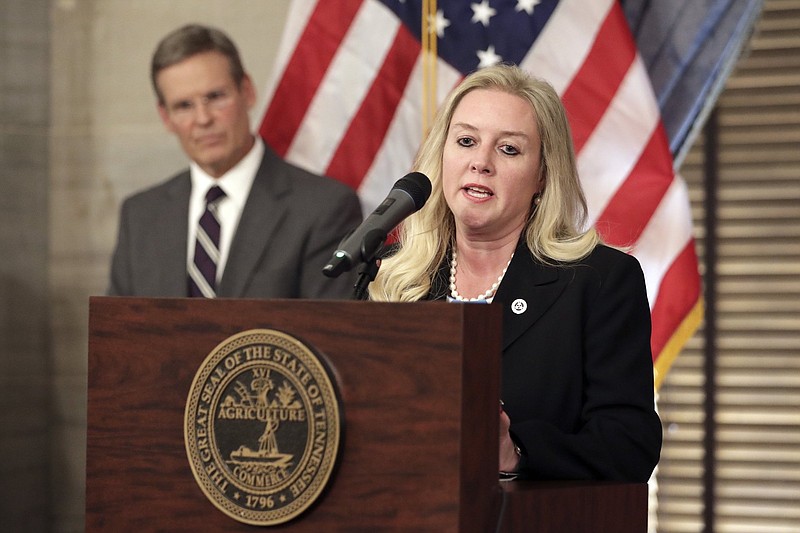Concerns that vaccinated Tennesseans could be denied access to monoclonal antibodies in order to conserve the life-saving drugs for unvaccinated people are subsiding as the number of new COVID-19 cases across the state declines.
"We spent pretty much all the month of September worried about our supply, and fortunately - fingers crossed - we have had enough," Tennessee Health Commissioner Dr. Lisa Piercey said during a news briefing on Wednesday. "I think with our waning demand that we will continue to have adequate or maybe even a little bit extra supply."
The federal government recently changed how it allocates monoclonal antibodies after seven states with high levels of COVID-19 and low vaccination rates - including Tennessee, Georgia and Alabama - accounted for 70% of the nation's monoclonal antibody orders. Tennessee was leading the nation in new COVID-19 cases per capita at that time.
As a result, the Tennessee Department of Health recommended that in the case of a shortage, providers follow National Institutes of Health guidelines, which call for those drugs to be conserved for people who are not fully vaccinated and at high risk of progressing to severe COVID-19 over those who are at high risk and fully vaccinated - with the exception of people with weakened immune responses, such as organ transplant recipients and patients undergoing chemotherapy.
Tennessee received around 1,000 fewer doses from the federal government this week compared to last, according to Piercey, but she said demand for the drugs is down as well.
"I'm optimistic that supply is going to hold and that we're not going to have to do any other prioritization for the foreseeable future," she said, noting that giving monoclonal antibodies for post-exposure prophylaxis is currently the only prohibited use.
Though the summer surge in Tennessee is showing some improvement, Piercey said Memphis and Jackson are seeing the most sustained decreases in new cases and hospitalizations, while the Knoxville and Chattanooga areas are just beginning to stabilize. Areas of the upper Cumberland region and Northeast Tennessee are still in the midst of a severe surge, she said.
"It's not uniform across the state," she said. "So sort of the same way that it ramped up a couple of months ago is the same pattern that it's following now."
Throughout the final week of August, Tennessee averaged nearly 8,500 new COVID-19 cases per day compared to an average of around 2,600 new cases per day over the past week, according to Department of Health data.
Statewide coronavirus hospitalizations peaked at 3,831 on Sept. 9. As of Tuesday, 2,636 patients were hospitalized in Tennessee due to COVID-19.
Tennessee reported 103 new COVID-19 deaths Wednesday, surpassing 15,000 total deaths since the start of the pandemic.
Contact Elizabeth Fite at efite@timesfreepress.com or follow her on Twitter @ecfite.
